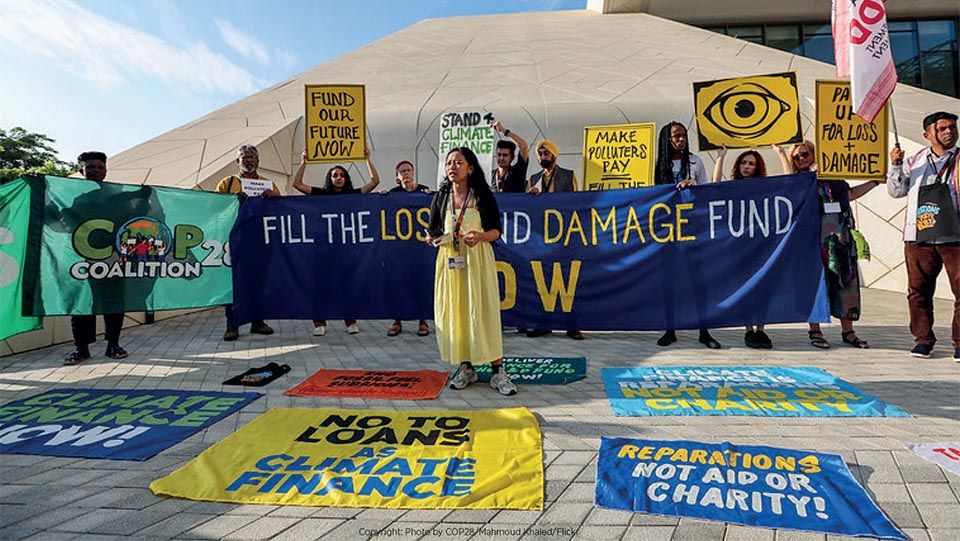Developing and emerging economies outside of China need investment of $2.4trn a year by 2030 for the world to meet the goals of the Paris Agreement, and private sector finance should provide the majority, delegates at COP28 have been told.
The figure was revealed by Lord Nicholas Stern, co-chair of the Independent High-Level Expert Group on Climate Finance (IHLEG), on day four (4 December) of COP28 in host nation Dubai.
Speaking at a press conference, Stern said the private sector needs to invest much more in climate-related finance: “When we talk about finance, we’re talking about finance with a purpose, the purpose is delivery on Paris,” he said.
“The private sector is where we argue the finance should be multiplied by a factor of 15. So that they’re a majority, small majority, but they’re a majority of the finance.”
Stern called for the financial sector to work with governments on a united, large-scale process to increase investment in climate-related finance, saying the “cost of capital is critical”.
“We can see what to do to increase the investment…to increase the finance, and it’s not just the total, it is how these different bits fit together to share and reduce the risk and thereby reduce the cost of capital, which is absolutely fundamental to getting this story done,” Stern continued.
Alongside the private sector, Stern put multilateral development banks (MDBs) governments and philanthropists on notice they need to work together to create the conditions to unlock this money.
The sum calculated by Stern and the IHLEG is needed to ensure a just energy transition, mitigate against loss and damage and conserve and restore nature.
Additional sources of revenue in the forms of international taxation, or levies, would also be needed, Stern said, in particular from the maritime, oil and gas and travel sectors.
“It means countries agreeing to make those taxes together…[then] the resources are potentially enormous,” he said.
The prize is “the growth story of the 21st Century”, he said.
“[You get] much more efficient cities where you can move and breathe. Ecosystems which are robust and fruitful. The clean is already cheaper than the dirty across many areas of activity, but to get this you have got to invest. You’ve got to have the conditions for investment, and you’ve got to have the finance for investment.”
Failure to do this will result in “really terrible” consequences, Stern said.
“If we move anywhere near 2.5 or 3 degrees [global temperature increase] we’re talking about destruction of whole civilisations, people having to move, hundreds of millions, perhaps billions [of people]. Let’s be totally clear on the risks we face here if we fail, but let’s not fail.”
Ambassador Majid Al Suwaidi, COP28 director-general, opened the press conference by saying finance is “one of the key pillars of what we’ve been trying to work towards this year on our action agenda”.
“Finance is a critical enabler for climate action. And ultimately, it’s how we turn our ambitions into reality. Quite simply finance delivers, action, action delivers hope and hope delivers the future,” he said.








